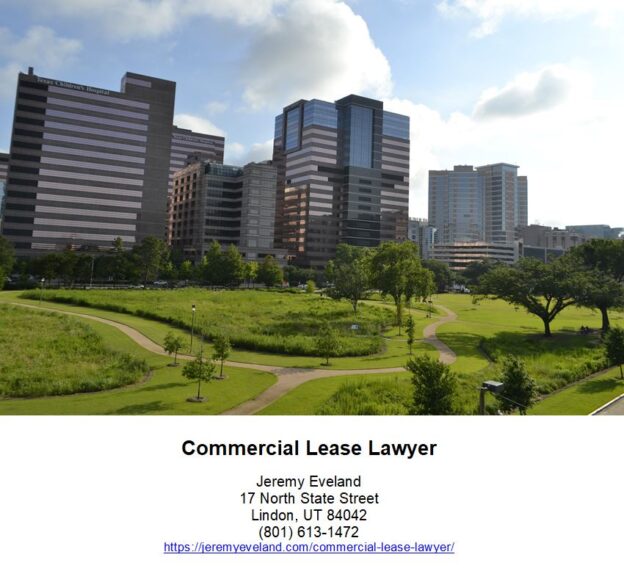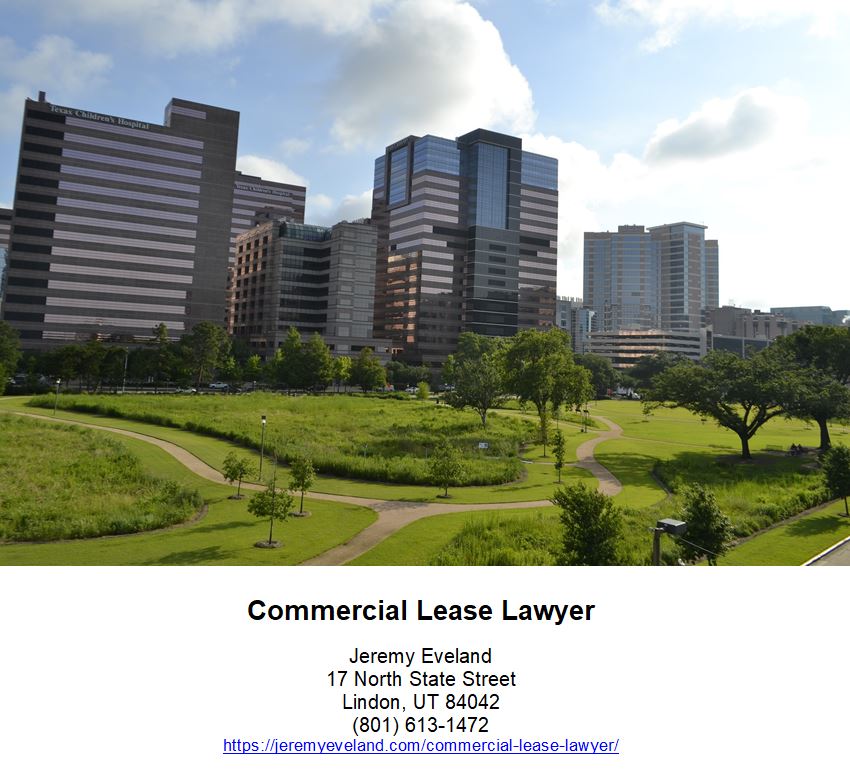Commercial Lease Lawyer
-
Legal Topics
- Introduction
- What to Look for When Hiring a Commercial Lease Lawyer
- Understanding the Different Types of Commercial Lease Agreements
- How to Negotiate a Commercial Lease Agreement
- The Benefits of Working with a Commercial Lease Lawyer
- Common Mistakes to Avoid When Signing a Commercial Lease Agreement
- Q&A
“Secure Your Business’s Future with a Commercial Lease Lawyer”
Introduction
A Commercial Lease Lawyer is a legal professional who specializes in the laws and regulations related to commercial leases. They provide legal advice and representation to landlords and tenants in the negotiation, drafting, and enforcement of commercial leases. Commercial Lease Lawyers are knowledgeable in the areas of real estate law, contract law, and landlord-tenant law. They are experienced in the negotiation of lease terms, the preparation of lease documents, and the resolution of disputes between landlords and tenants. Commercial Lease Lawyers are essential for businesses that are looking to enter into a commercial lease agreement.
What to Look for When Hiring a Commercial Lease Lawyer
When hiring a commercial lease lawyer, it is important to consider several factors. First, it is important to ensure that the lawyer has experience in the area of commercial leasing. The lawyer should have a thorough understanding of the laws and regulations that govern commercial leases, as well as the ability to negotiate and draft lease agreements.
Second, it is important to consider the lawyer’s reputation. Ask for references from past clients and research the lawyer’s background to ensure that they have a good track record.
Third, it is important to consider the lawyer’s fees. Ask for a detailed fee structure and make sure that the lawyer is willing to work within your budget.
Fourth, it is important to consider the lawyer’s communication style. Make sure that the lawyer is willing to answer your questions and provide timely updates on the progress of your case.
Finally, it is important to consider the lawyer’s availability. Make sure that the lawyer is available to meet with you when needed and that they are willing to work around your schedule.
By considering these factors, you can ensure that you hire a commercial lease lawyer who is experienced, reputable, affordable, communicative, and available.
Understanding the Different Types of Commercial Lease Agreements
Commercial leases are agreements between a landlord and a tenant for the rental of a commercial property. These agreements are typically more complex than residential leases, as they involve a greater financial commitment and longer terms. It is important for both parties to understand the different types of commercial lease agreements and the implications of each.
The most common type of commercial lease is a gross lease. In this arrangement, the tenant pays a fixed amount of rent each month, and the landlord is responsible for all operating expenses, such as taxes, insurance, and maintenance. This type of lease is beneficial for tenants who want to avoid the hassle of managing the property, but it can be costly if the landlord’s expenses exceed the rent.
Another type of commercial lease is a net lease. In this arrangement, the tenant pays a base rent plus a portion of the operating expenses. This type of lease is beneficial for tenants who want to have more control over their expenses, but it can be risky if the operating expenses exceed the rent.
A third type of commercial lease is a triple net lease. In this arrangement, the tenant pays a base rent plus all of the operating expenses. This type of lease is beneficial for tenants who want to have complete control over their expenses, but it can be costly if the operating expenses exceed the rent.
Finally, a percentage lease is a type of commercial lease in which the tenant pays a base rent plus a percentage of their gross sales. This type of lease is beneficial for tenants who want to have more control over their expenses, but it can be risky if the tenant’s sales do not meet the landlord’s expectations.
Understanding the different types of commercial lease agreements is essential for both landlords and tenants. It is important to carefully consider the implications of each type of lease before entering into an agreement.
How to Negotiate a Commercial Lease Agreement
Negotiating a commercial lease agreement can be a complex process. It is important to understand the terms of the agreement and to be prepared to negotiate the best deal for your business. Here are some tips to help you negotiate a commercial lease agreement:
1. Research the Market: Before you begin negotiations, it is important to research the local market to determine the going rate for commercial leases in your area. This will help you determine a fair and reasonable rent amount.
2. Know Your Needs: Before you begin negotiations, it is important to know what your business needs in terms of space, amenities, and other factors. This will help you determine what type of lease agreement is best for your business.
3. Negotiate Terms: Once you have determined the type of lease agreement that is best for your business, it is time to negotiate the terms of the agreement. Be sure to discuss the length of the lease, the rent amount, and any other terms that are important to your business.
4. Get Everything in Writing: Once you have agreed upon the terms of the lease, it is important to get everything in writing. This will ensure that both parties are held to the terms of the agreement.
Negotiating a commercial lease agreement can be a complex process. However, by following these tips, you can ensure that you get the best deal for your business.
The Benefits of Working with a Commercial Lease Lawyer
When it comes to commercial leases, it is important to understand the legal implications of the agreement. A commercial lease lawyer can help you navigate the complexities of the law and ensure that your rights are protected. Here are some of the benefits of working with a commercial lease lawyer.
1. Expertise: A commercial lease lawyer has the expertise and experience to help you understand the legal implications of your lease agreement. They can provide advice on the best way to structure the agreement and ensure that all parties are protected.
2. Negotiation: A commercial lease lawyer can help you negotiate the terms of the lease agreement. They can help you understand the legal implications of the agreement and ensure that all parties are satisfied with the terms.
3. Dispute Resolution: If there is a dispute between the parties, a commercial lease lawyer can help you resolve the issue. They can provide advice on the best way to resolve the dispute and ensure that all parties are satisfied with the outcome.
4. Compliance: A commercial lease lawyer can help you ensure that the lease agreement is compliant with all applicable laws and regulations. They can provide advice on the best way to structure the agreement and ensure that all parties are in compliance.
5. Cost Savings: Working with a commercial lease lawyer can help you save money in the long run. They can provide advice on the best way to structure the agreement and ensure that all parties are satisfied with the terms. This can help you avoid costly disputes and ensure that all parties are satisfied with the agreement.
Working with a commercial lease lawyer can help you protect your rights and ensure that all parties are satisfied with the agreement. They can provide advice on the best way to structure the agreement and ensure that all parties are in compliance with the law. This can help you save money in the long run and ensure that all parties are satisfied with the agreement.
Common Mistakes to Avoid When Signing a Commercial Lease Agreement
1. Not Reading the Entire Lease Agreement: Before signing a commercial lease agreement, it is important to read the entire document carefully. Make sure you understand all of the terms and conditions, and that you are comfortable with them.
2. Not Negotiating the Terms: Don’t be afraid to negotiate the terms of the lease agreement. You may be able to get a better deal if you are willing to negotiate.
3. Not Understanding the Responsibilities: Make sure you understand who is responsible for what in the lease agreement. This includes who is responsible for repairs, maintenance, and other costs.
4. Not Knowing the Local Laws: Make sure you understand the local laws and regulations that apply to the lease agreement. This includes zoning laws, building codes, and other regulations.
5. Not Getting Legal Advice: Before signing a commercial lease agreement, it is important to get legal advice from an experienced attorney. This will help ensure that you understand the terms of the agreement and that you are protected.
6. Not Getting Everything in Writing: Make sure that all of the terms of the lease agreement are in writing. This will help protect you in case of a dispute.
7. Not Knowing the Termination Clauses: Make sure you understand the termination clauses in the lease agreement. This will help you know when and how you can terminate the lease.
8. Not Knowing the Renewal Clauses: Make sure you understand the renewal clauses in the lease agreement. This will help you know when and how you can renew the lease.
9. Not Knowing the Security Deposit Requirements: Make sure you understand the security deposit requirements in the lease agreement. This will help you know how much money you need to put down as a security deposit.
10. Not Knowing the Insurance Requirements: Make sure you understand the insurance requirements in the lease agreement. This will help you know what type of insurance you need to have in order to protect yourself and your business.
Q&A
1. What is a Commercial Lease Lawyer?
A Commercial Lease Lawyer is a lawyer who specializes in the legal aspects of leasing commercial property. They are knowledgeable in the laws and regulations that govern commercial leases, and can provide advice and assistance to both landlords and tenants.
2. What services does a Commercial Lease Lawyer provide?
A Commercial Lease Lawyer can provide a variety of services, including drafting and negotiating commercial leases, reviewing and interpreting existing leases, and providing advice on landlord-tenant disputes. They can also provide advice on zoning and other local regulations that may affect a commercial lease.
3. What should I look for when hiring a Commercial Lease Lawyer?
When hiring a Commercial Lease Lawyer, it is important to make sure that they are experienced and knowledgeable in the laws and regulations that govern commercial leases. It is also important to make sure that they are familiar with the local laws and regulations that may affect the lease.
4. How much does a Commercial Lease Lawyer cost?
The cost of a Commercial Lease Lawyer will vary depending on the complexity of the case and the amount of work that needs to be done. Generally, lawyers charge an hourly rate for their services.
5. What are some common issues that a Commercial Lease Lawyer can help with?
A Commercial Lease Lawyer can help with a variety of issues, including drafting and negotiating commercial leases, reviewing and interpreting existing leases, providing advice on landlord-tenant disputes, and providing advice on zoning and other local regulations that may affect a commercial lease.
Commercial Lease Lawyer Consultation
When you need legal help from a Commercial Lease Lawyer, call Jeremy D. Eveland, MBA, JD (801) 613-1472 for a consultation.
Jeremy Eveland
17 North State Street
Lindon UT 84042
(801) 613-1472
Related Posts
Business Succession Lawyer Logan Utah
What Is The Relationship Between Business Law And Economies?
Business Transaction Lawyer West Valley City Utah
Do I Need A Permit To Start A Business In Utah?
Business Succession Lawyer Draper Utah
Business Contract Lawyer Salt Lake City
What Is The Difference Between Corporate And Commercial Law?
Business Contract Lawyer West Valley City
Business Lawyer West Jordan Utah
Irrevocable Life Insurance Trusts



